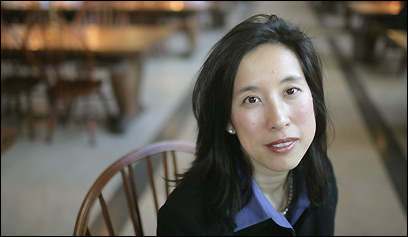This is why it is important to do everything you can to stay focused and to keep your eyes on the prize: being a doctor. Here are some tips to help you do that.
Write the Letter
As soon as you get accepted to med school, while you are still riding that high of getting into the school you wanted, write yourself a letter. Talk about how you feel right now and remind yourself of why you’re going to med school in the first place. Encourage yourself to keep going even when things get hard. Then, put that letter in an envelope and hide it away. Pull it out and read it whenever the stress of med school starts to get to you and you start to forget why you signed up for all of this terribleness. That letter will do a better job of reminding you why you’re doing all of this than any pep talk anybody else can give you.
Make Friends
Med students are notorious for trying to go it all alone. Many see their fellow students solely as competition to be bested or resist the urge to bond because they don’t want to have to worry that a friendship will get in the way of their getting ahead. Here’s the truth: your classmates are going to pick up on things you don’t. They are also going to better understand what you are dealing with than anybody “on the outside.” (2) Make friends and support each other. Medicine is a competitive field, but it is also a collaborative one. Remember that.
Have FunWait, what? That seems counterintuitive, doesn’t it? Med school is supposed to be about 100% dedication and focus on your studies, right? No. Everybody needs a break from time to time. It’s good to put the books away once in a while and just hang out and have fun. If all you ever do is study, you will burn out. Trust us on this.
Set Firm BoundariesAt the same time, be firm with the rules you set for yourself. Do not let yourself get tempted into blowing off a study session for a movie when you know that you’re having a hard time in a class. And don’t let your desire to be the first in your class get in the way of your connections with your family and your friends. Set a schedule, stick to it and commit to it. Learn to be okay with saying “no” sometimes, even if it is to yourself! This is the other half of the socializing coin. You can’t be everything to everyone and to yourself. It’s okay to be selfish.
Stay SoberMed school will run you ragged. This is a given. It is also a given that you are going to be tempted from time to time to look for help staying awake, staying energized, staying focused. And when coffee stops being enough, it’s tempting to turn to something stronger. Resist this urge. Studies show that people who use drugs actually increase your feelings of disinterest and distraction. (3) You might be more awake, but you won’t be able to put that energy to good use. Plus, addiction is harder to beat than med school. Trust us on this.
Sources:
- "How a Doe-Eyed Pre-Med Student Changes into a Jaded Doctor." Medical School Success. Web. 29 Apr. 2015. http://www.medicalschoolsuccess.com/how-a-doe-eyed-pre-med-student-changes-into-a-jaded-doctor/
- DeCoste-Lopez, Jennifer. "Med School Friendships from Classroom to Clinics." Scope Blog. Stanford Medicine, 9 Apr. 2014. Web. 29 Apr. 2015. http://scopeblog.stanford.edu/2014/04/09/med-school-friendships-from-classroom-to-clinics/
- "The Impact of Education on Addiction - Michael's House Treatment Centers." Michaels House Treatment Centers. Michael's House. Web. 29 Apr. 2015. http://www.michaelshouse.com/drug-addiction/impact-education-addiction/
- "What Is Medical School Like? Think Fire Hose!" Happy Hospitalist. Web. 29 Apr. 2015. http://thehappyhospitalist.blogspot.com/2009/09/what-is-medical-school-like.html


